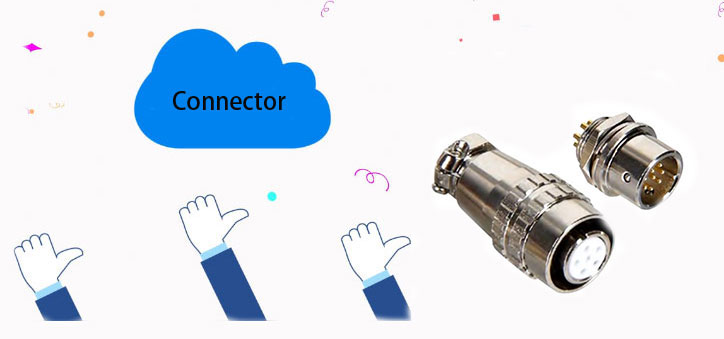Why Do We Need Connectors?
Connectors are key components in the field of modern technology, connectors play an important role in connecting, transmitting, and integrating various signals, data, and energy. Whether it's a smartphone or computer in personal life or an automation system in industrial production, connectors are an essential part of the process. ATO shop takes a closer look at why we need connectors, their importance, and what the future holds for them.
The Basic Function of Connectors
The basic function of a connector is to connect different devices, cables, and wires for the transmission of signals, data, and energy. These connectors act as a bridge between the devices and allow the various devices to work together. Connectors are used to connect computers and external devices, TVs and sound systems, electronics in cars, cell phones and chargers, and industrial robots and sensors.
Connectors typically include plugs and sockets, with the plugs connecting to one end of a device or cable and the sockets connecting to one end of another. Connectors ensure the transmission of signals and energy through metal contacts, threads, snaps, or other mechanical connections.
Benefits of Connectors
- Improvement of the Production Process: Connectors simplify the assembly process of electronic products. It also simplifies the mass production process.
- Ease of Maintenance: If an electronic component fails, it can be quickly replaced when fitted with a connector.
- Easy to Upgrade: With the advancement of technology, when equipped with connectors, you can update the components and replace the old ones with new and better ones.
- Increased Design Flexibility: The use of connectors gives engineers greater flexibility in designing and integrating new products, as well as in composing systems from components.
Importance of Connectors
Device Interconnection and Transmission
In the digital age, data transmission has become critical. Connectors play a key role in ensuring that data is transferred from one place to another. Whether it's browsing the web on the Internet, sending emails, shopping online, or transmitting sensor data and monitoring the status of equipment in industrial production, connectors are a key part of data transmission.

Power transmission is another key function of connectors. Connectors are used to transfer power from the grid to various devices such as home appliances, electric vehicles, and electronic equipment. Connectors are also used to distribute power and ensure that power is transferred to devices safely and efficiently.
Modern devices often need to be interconnected with other devices for more advanced functions. Connectors make it easy to interconnect devices, allowing for broader interoperability. For example, USB connectors allow computers to connect to a variety of peripheral devices (printers, keyboards, mice, etc.), and HDMI connectors link TVs to sound systems, enabling users to enjoy a high-definition audio and video experience.
Automation and Industrial Production
In the field of industrial automation, connectors are vital for data transfer and communication between machines. Connectors link sensors, actuators, controllers, and monitoring systems to automate production and monitoring. The reliability and performance of connectors have a direct impact on production efficiency and product quality.
Medical Devices
In the medical field, connectors are used to connect a variety of medical devices, such as electrocardiographs, thermometers, and medical imaging equipment. Connectors not only ensure data transmission but also help to monitor the patient's health status and provide necessary information to healthcare professionals.
Future Prospects
- Internet of Things: IoT is an important development direction in the connector field. As more and more devices and sensors connect to the Internet, connectors will play a key role in ensuring communication between devices. IoT connectors need to meet the needs of low power consumption, high reliability, and wide coverage.
- High-speed Data Transmission: With the rise of high-definition video, virtual reality, augmented reality, and other media and communication applications, the demand for high-speed data transmission is increasing. Connector manufacturers are developing and launching connectors that support higher data rates to meet these demands. Communication connectors will become even more important with the rollout of 5G networks. These connectors will need to support high frequency, high-speed data transmission, and low latency to ensure stable communications.
- Electric Vehicles and Renewable Energy: The rapid growth of the electric vehicle and renewable energy industries provides a huge opportunity for connectors. These vehicles and energy systems require high-current connectors to transmit energy efficiently and support the integration of renewable energy sources.
- Medical and Biotech: Connectors will continue to play a key role in the medical and biotech sectors. As medical devices and biosensors evolve, connectors will need to meet the demands of biocompatibility and accurate measurements.
- Environmentally Friendly: Connector manufacturers are actively seeking greener materials and production processes to minimize their impact on the environment. Recyclable materials, energy-efficient production, and reduction of waste e-waste are all trends in the future of connector development.

Overall, connectors are an important part of modern technology, and their importance and prospects cannot be ignored. Connectors not only drive the development of science and technology but also play a key role in various fields, thus improving our quality of life, increasing productivity, and supporting the development of innovation. As technology continues to evolve and new applications emerge, connectors will continue to play a vital role in laying a solid foundation for future development.

